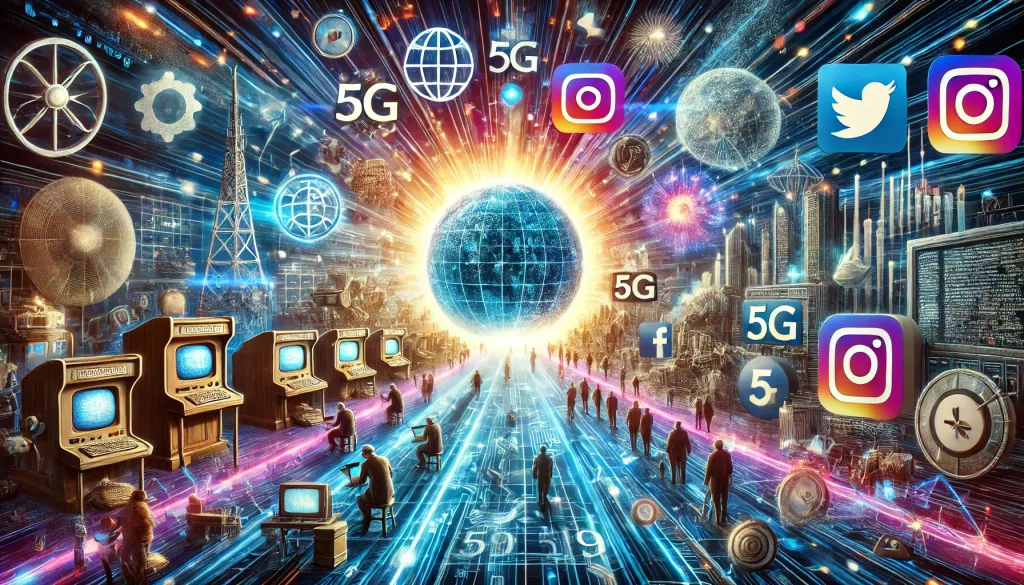
The internet, as we know it today, is the backbone of modern communication and innovation. Its journey from a niche academic experiment to a global phenomenon is nothing short of remarkable. Here’s a brief look at the key milestones in the evolution of the internet.
1960s: The Beginning
The seeds of the internet were sown in the 1960s during the Cold War. The U.S. Department of Defense initiated the ARPANET (Advanced Research Projects Agency Network) to create a decentralized communication network that could withstand potential attacks.
- 1969: The first successful message was sent between UCLA and Stanford, albeit with a crash after the first two letters, “LO.”
1970s: The Foundation of Networking
The 1970s saw the development of protocols that are fundamental to the internet.
- 1971: Email was introduced by Ray Tomlinson, allowing users to send messages between computers.
- 1973: The concept of internetworking was born, laying the groundwork for connecting multiple networks.
- 1974: Vint Cerf and Bob Kahn developed the TCP/IP protocols, which remain at the heart of internet communication.
1980s: The Internet Goes Public
This decade witnessed the transition of the internet from a military tool to an academic and commercial resource.
- 1983: ARPANET adopted TCP/IP protocols, officially marking the birth of the internet.
- 1989: Tim Berners-Lee proposed the concept of the World Wide Web, envisioning a system to link and access information through the internet.
1990s: The Internet Boom
The 1990s were a transformative decade, turning the internet into a household utility.
- 1991: The World Wide Web became publicly available, making the internet user-friendly and accessible.
- 1993: The launch of Mosaic, the first graphical web browser, allowed users to navigate the web visually.
- 1998: Google was founded, revolutionizing how we search for and access information.
2000s: The Era of Social Media
The early 2000s saw the rise of social networking platforms, connecting people worldwide.
- 2004: Facebook was launched, redefining social interactions online.
- 2005: YouTube was founded, creating a platform for video sharing and viral content.
- 2007: The iPhone debuted, enabling mobile access to the internet on a massive scale.
2010s to Present: The Digital Transformation
The internet continues to evolve, driving innovation in various fields.
- The rise of cloud computing, AI, and IoT (Internet of Things) has expanded its potential beyond communication.
- Social media platforms like Instagram, TikTok, and Twitter have shaped culture and business.
- The introduction of 5G networks has significantly increased internet speed and accessibility.
The Internet Today
The internet is no longer just a tool; it’s a fundamental part of daily life. From remote work and education to streaming services and smart devices, its influence is ubiquitous.
As we look to the future, technologies like quantum computing, Web 3.0, and AI-driven personalization are set to redefine the internet yet again.
What’s your take on the internet’s journey? Share your thoughts in the comments below!
Stay tuned to Lifeislive: Explore. Innovate. Live Fully. 🌐